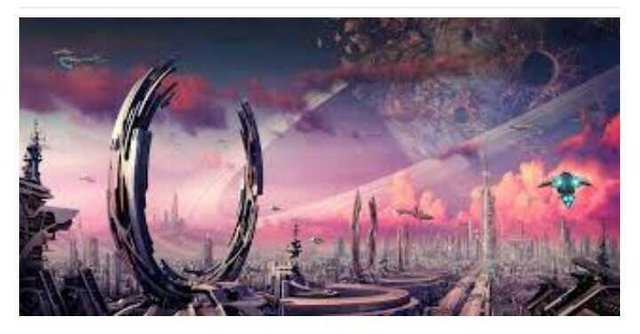There are 5 science fiction that are favorite to read
The story of science fiction is the path of adventure to a new world in the future — the world imagined by the author. Despite fiction, readers often demand logical narratives and readers who understand science also demand scientific narratives.
Since Jules Verne (1828-1905) wrote Around The World in Eighty Days and From the Earth to the Moon and H.G. Wells (1866-1946) wrote The Time Machine and The Invisible Hand, the science-fiction genre continued to develop so that various trajectories emerged, such as cyberpunk. The development of science and technology also influenced the imagination of the writers in pouring their stories.
Many science fiction novels and short stories were born from 20th century generation writers after Verne and Wells. A short list can be made about works that deserve to be favorites - of course, this list can be extended to include more work.
Here are the five favorite science fiction, all of which are classified as 'classic'. Three choices of which are the work of three authors commonly referred to as "The Big Three" in science fiction, namely Isaac Asimov, Robert Heinlein, and Arthur C. Clarke. In addition there is the work of Philip K. Dick, whose name is immortalized as one of the awards of science fiction, as well as the work of Ursula K. Le Guin - a female writer who is considered great in science fiction, namely The Left Hand of Darkness.

THE LEFT HAND OF DARKNESS, Ursula K. Le Guin
The novel was written by Ursula in 1969 as part of the Hainish Cycle, a series on the Hainish universe that began in 1966. In an introduction to the publication in 1976, Le Guin called this novel a 'thought experiment' to explore society without men and women, where individuals share biological and emotional elements in both genders. Le Guin introduced the term ambisexual — each person can be a 'male' or 'female' according to the context and relationship being established.
Left Hand won the Hugo Award and Nebula Award as the best novel in each year. Assessment is carried out by audiences of science fiction, readers and writers. Recognition of Ursula's work also came in 1987 from Locus, a magazine about science fiction and fantasy. This magazine ranks The Left in the second place among 'Fiction-Science Novels of All Time'.
THE MAN IN THE HIGH CASTLE, Philip K. Dick
What happened to the United States if the Allies lost the World War II scene, and did not win as it actually happened? Philip Dick made the possibility in this important novel. The novel that won the Hugo award in 1963 bridges what is called alternate history and science-fiction.
In The Man, Dick tells the daily life of the people (former) of the United States under the rule of Japanese imperialists and Nazi Germany 15 years after World War II was over (in this novel it was mentioned in 1947). This novel won the Hugo award and will be appointed as a TV series this year.
2001: A SPACE ODYSSEY, Arthur C. Clarke
Clarke's work has been widely discussed since it was published, and then raised to the big screen. The Odyssey Space Series combines the narrative conventions of science with the scent of metaphysics.
When mysterious monoliths were found buried on the Moon, scientists were surprised that these creatures were thought to be at least 3 million years old. Even more surprising, after the grave was dismantled, this artifact emits signals that point to Saturn. What does it mean? To answer this question, the scientists sent an expedition with the Discovery aircraft to Saturn.
FOUNDATION TRILOGY, Isaac Asimov
This work is very popular in the midst of hundreds of Isaac Asimov's fiction and non-fiction works, including three series: Foundation, Foundation and Empire, and Second Foundation. Narrated, the Earth is a past history because humans have spread throughout the galaxy. Humans built empires that lasted thousands of years, but then began to falter due to corruption, bureaucracy and political strife.
The character of Hari Seldon, a professor of mathematics who develops psychohistory, who is able to predict the future through his expertise in probabilistic, trying to save humans and save all knowledge in a giant encyclopedia. He brings together scientists and scholars and takes them to a planet that will become a foundation for starting a new era of humanity. This trilogy is considered to be the achievement of great science fiction.
STRANGER IN A STRANGE LAND, Robert Heinlein
Shadowed by the greatness of Isaac Asimov's name, Heinlein actually created a work that was also very influential in the world of science fiction. He is often classified as the author of "hard science fiction", which is a science novel that takes the science element very seriously.
The central character of the novel is Valentine Michael Smith, a human who was born during the first human mission to Mars. After being raised by Martians, Mike returned to Earth and he felt alien to human culture. Strange's novel sold well and renamed Robert Heinlein.